When it comes to athletic footwear, choosing the right material is essential for optimal performance, comfort, and durability. Two popular choices in the market today are synthetic leather and mesh shoes. Both materials have their unique characteristics and advantages, catering to different preferences and needs. In this detailed article, we will compare synthetic leather and mesh shoes, highlighting their key features, benefits, and drawbacks to help you make an informed decision when selecting your next pair of athletic shoes. Synthetic Leather Shoes: Synthetic leather, also known as faux leather or vegan leather, is a man-made material designed to mimic the appearance and texture of real leather while being more affordable and cruelty-free. These shoes are typically crafted using polyvinyl chloride (PVC) or polyurethane (PU) coatings on a fabric base, creating a synthetic alternative with comparable aesthetics. Advantages of Synthetic Leather Shoes: 1. Durability: Synthetic leather shoes are known for their excellent durability. They are highly resistant to abrasion, tearing, and cracking, making them suitable for various types of physical activities.
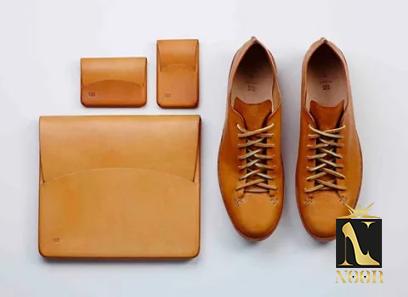
.
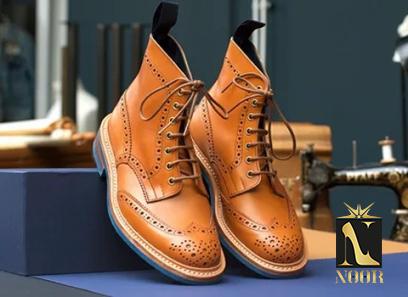 2. Water Resistance: The synthetic material used in these shoes is naturally water-resistant, providing added protection against moisture and allowing for easy cleaning and maintenance. 3. Stylish Appearance: Synthetic leather shoes come in a wide range of colors and finishes, allowing for versatility in design. They often have a sleek and polished look, making them a popular choice for casual wear or sporty outfits. 4. Easy to Clean: Synthetic leather shoes can be easily wiped clean with a damp cloth. They do not require special cleaning products or frequent maintenance, offering convenience and saving time in the long run. 5. Animal-Friendly: As a synthetic alternative to real leather, these shoes are ideal for individuals who prefer not to use or wear animal products, making them a more ethical and sustainable choice. Drawbacks of Synthetic Leather Shoes: 1. Breathability: One of the major downsides of synthetic leather shoes is their limited breathability. The non-porous nature of the material restricts air circulation, resulting in less moisture absorption and potentially causing sweat-prone feet to feel hot and uncomfortable. 2. Limited Flexibility: Compared to natural leather or mesh, synthetic leather has less flexibility. This can restrict the shoe’s ability to mold and conform to the foot’s movement, potentially leading to discomfort or blisters during prolonged use. 3. Odor Retention: Synthetic leather shoes may retain odors more easily than mesh shoes.
2. Water Resistance: The synthetic material used in these shoes is naturally water-resistant, providing added protection against moisture and allowing for easy cleaning and maintenance. 3. Stylish Appearance: Synthetic leather shoes come in a wide range of colors and finishes, allowing for versatility in design. They often have a sleek and polished look, making them a popular choice for casual wear or sporty outfits. 4. Easy to Clean: Synthetic leather shoes can be easily wiped clean with a damp cloth. They do not require special cleaning products or frequent maintenance, offering convenience and saving time in the long run. 5. Animal-Friendly: As a synthetic alternative to real leather, these shoes are ideal for individuals who prefer not to use or wear animal products, making them a more ethical and sustainable choice. Drawbacks of Synthetic Leather Shoes: 1. Breathability: One of the major downsides of synthetic leather shoes is their limited breathability. The non-porous nature of the material restricts air circulation, resulting in less moisture absorption and potentially causing sweat-prone feet to feel hot and uncomfortable. 2. Limited Flexibility: Compared to natural leather or mesh, synthetic leather has less flexibility. This can restrict the shoe’s ability to mold and conform to the foot’s movement, potentially leading to discomfort or blisters during prolonged use. 3. Odor Retention: Synthetic leather shoes may retain odors more easily than mesh shoes.
..
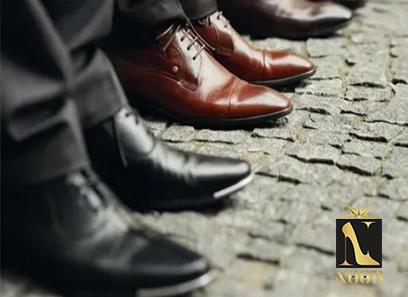 The lack of breathability combined with the synthetic nature of the material can create an environment conducive to odor-causing bacteria growth. Mesh Shoes: Mesh shoes, on the other hand, are constructed using breathable and lightweight textured fabrics, often made of nylon or polyester. The mesh design allows air to circulate through the shoe, offering enhanced breathability and ventilation. Advantages of Mesh Shoes: 1. Breathability: The primary advantage of mesh shoes is their exceptional breathability. The porous nature of the mesh material allows air to flow through, promoting better ventilation and reducing the chances of sweaty and uncomfortable feet. 2. Flexibility and Comfort: Mesh shoes are known for their flexibility, offering a comfortable fit that allows for easy movement and natural foot expansion. The mesh fabric molds to the shape of the foot and provides greater freedom of movement. 3. Moisture Wicking: Mesh shoes have good moisture-wicking properties. The material absorbs and wicks away moisture from the foot, keeping it dry and preventing the buildup of sweat that can lead to discomfort and blisters. 4. Lightweight: Due to the lightweight nature of the mesh material, these shoes are a popular choice for athletic activities. They offer a featherlight feel, making them ideal for long-distance runs, sports, and other high-energy activities. 5. Odor Prevention: The breathability and moisture-wicking properties of mesh shoes contribute to odor prevention. By allowing air to circulate and eliminating excess moisture, these shoes discourage the growth of odor-causing bacteria, keeping your feet fresh.
The lack of breathability combined with the synthetic nature of the material can create an environment conducive to odor-causing bacteria growth. Mesh Shoes: Mesh shoes, on the other hand, are constructed using breathable and lightweight textured fabrics, often made of nylon or polyester. The mesh design allows air to circulate through the shoe, offering enhanced breathability and ventilation. Advantages of Mesh Shoes: 1. Breathability: The primary advantage of mesh shoes is their exceptional breathability. The porous nature of the mesh material allows air to flow through, promoting better ventilation and reducing the chances of sweaty and uncomfortable feet. 2. Flexibility and Comfort: Mesh shoes are known for their flexibility, offering a comfortable fit that allows for easy movement and natural foot expansion. The mesh fabric molds to the shape of the foot and provides greater freedom of movement. 3. Moisture Wicking: Mesh shoes have good moisture-wicking properties. The material absorbs and wicks away moisture from the foot, keeping it dry and preventing the buildup of sweat that can lead to discomfort and blisters. 4. Lightweight: Due to the lightweight nature of the mesh material, these shoes are a popular choice for athletic activities. They offer a featherlight feel, making them ideal for long-distance runs, sports, and other high-energy activities. 5. Odor Prevention: The breathability and moisture-wicking properties of mesh shoes contribute to odor prevention. By allowing air to circulate and eliminating excess moisture, these shoes discourage the growth of odor-causing bacteria, keeping your feet fresh.
…
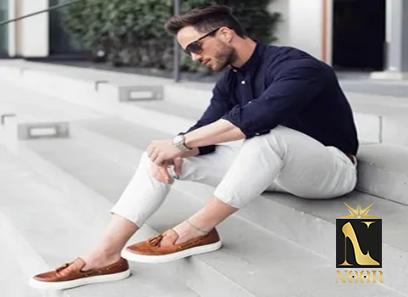 Drawbacks of Mesh Shoes: 1. Durability: Compared to synthetic leather shoes, mesh shoes may not be as durable. The mesh fabric is susceptible to tearing and abrasion, especially when exposed to rough surfaces or harsh environments. 2. Limited Protection: Mesh shoes may offer limited protection against external elements, such as water, dust, or debris, due to their breathable nature. They might not be the best choice for extreme weather conditions or activities that require higher levels of protection. 3. Staining: Mesh shoes are more prone to staining compared to synthetic leather shoes. The porous nature of the fabric can absorb spills and dirt more easily, resulting in visible marks that might be challenging to clean. Conclusion: Choosing between synthetic leather and mesh shoes ultimately depends on your specific needs, preferences, and the intended use of the footwear. Synthetic leather shoes offer durability, water resistance, and a stylish appearance, making them a suitable choice for casual wear or sports activities that don’t require extensive breathability. On the other hand, mesh shoes excel in breathability, flexibility, and comfort, providing optimal ventilation and moisture-wicking properties, making them ideal for high-intensity workouts or humid conditions. Ultimately, it’s essential to weigh the advantages and drawbacks of each material and consider the specific requirements of your activities to make an informed decision. Whether you opt for synthetic leather or mesh shoes, choosing a reputable brand known for quality craftsmanship will ensure the longevity and performance of your footwear. Please note that the information provided in this article is of a general nature and does not constitute professional advice. It is always recommended to consult with a footwear specialist or manufacturer for specific recommendations based on your unique circumstances.
Drawbacks of Mesh Shoes: 1. Durability: Compared to synthetic leather shoes, mesh shoes may not be as durable. The mesh fabric is susceptible to tearing and abrasion, especially when exposed to rough surfaces or harsh environments. 2. Limited Protection: Mesh shoes may offer limited protection against external elements, such as water, dust, or debris, due to their breathable nature. They might not be the best choice for extreme weather conditions or activities that require higher levels of protection. 3. Staining: Mesh shoes are more prone to staining compared to synthetic leather shoes. The porous nature of the fabric can absorb spills and dirt more easily, resulting in visible marks that might be challenging to clean. Conclusion: Choosing between synthetic leather and mesh shoes ultimately depends on your specific needs, preferences, and the intended use of the footwear. Synthetic leather shoes offer durability, water resistance, and a stylish appearance, making them a suitable choice for casual wear or sports activities that don’t require extensive breathability. On the other hand, mesh shoes excel in breathability, flexibility, and comfort, providing optimal ventilation and moisture-wicking properties, making them ideal for high-intensity workouts or humid conditions. Ultimately, it’s essential to weigh the advantages and drawbacks of each material and consider the specific requirements of your activities to make an informed decision. Whether you opt for synthetic leather or mesh shoes, choosing a reputable brand known for quality craftsmanship will ensure the longevity and performance of your footwear. Please note that the information provided in this article is of a general nature and does not constitute professional advice. It is always recommended to consult with a footwear specialist or manufacturer for specific recommendations based on your unique circumstances.
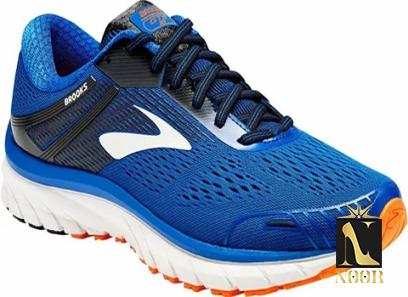
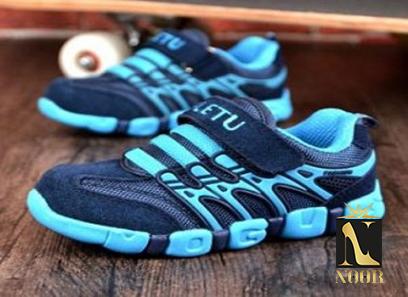
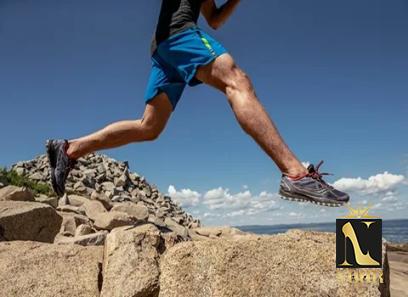


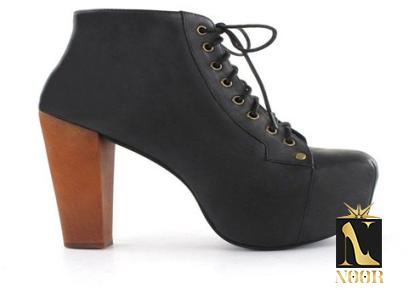
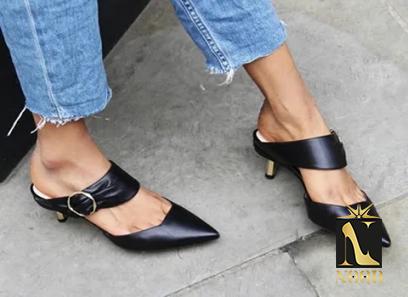
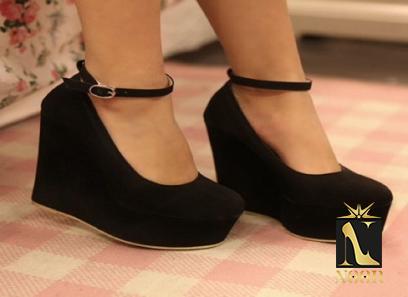
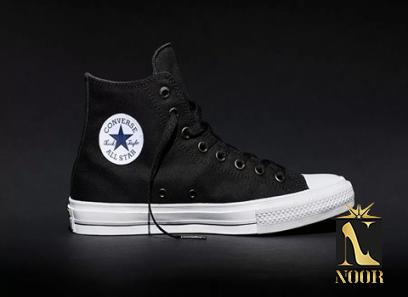
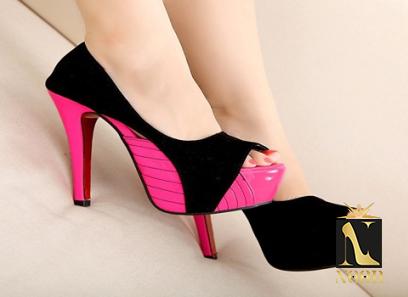
Your comment submitted.